AI Dashboard is available on the Web, Apple, Google, and Microsoft, PRO version
What is OpenAI Q*? A deeper look at the Q* Model as a combination of A* algorithms and Deep Q-learning networks.
Embark on a journey of discovery with our podcast, ‘What is OpenAI Q*? A Deeper Look at the Q* Model’. Dive into the cutting-edge world of AI as we unravel the mysteries of OpenAI’s Q* model, a groundbreaking blend of A* algorithms and Deep Q-learning networks. 🌟🤖
In this detailed exploration, we dissect the components of the Q* model, explaining how A* algorithms’ pathfinding prowess synergizes with the adaptive decision-making capabilities of Deep Q-learning networks. This video is perfect for anyone curious about the intricacies of AI models and their real-world applications.
Understand the significance of this fusion in AI technology and how it’s pushing the boundaries of machine learning, problem-solving, and strategic planning. We also delve into the potential implications of Q* in various sectors, discussing both the exciting possibilities and the ethical considerations.
Get 20% off Google Google Workspace (Google Meet) Standard Plan with the following codes: 96DRHDRA9J7GTN6
 Get 20% off Google Workspace (Google Meet) Business Plan (AMERICAS): M9HNXHX3WC9H7YE (Email us for more codes)
Get 20% off Google Workspace (Google Meet) Business Plan (AMERICAS): M9HNXHX3WC9H7YE (Email us for more codes)
Join the conversation about the future of AI and share your thoughts on how models like Q* are shaping the landscape. Don’t forget to like, share, and subscribe for more deep dives into the fascinating world of artificial intelligence! #OpenAIQStar #AStarAlgorithms #DeepQLearning #ArtificialIntelligence #MachineLearningInnovation”
🚀 Whether you’re a tech enthusiast, a professional in the field, or simply curious about artificial intelligence, this podcast is your go-to source for all things AI. Subscribe for weekly updates and deep dives into artificial intelligence innovations.
✅ Don’t forget to Like, Comment, and Share this video to support our content.
📌 Check out our playlist for more AI insights
📖 Read along with the podcast:
Welcome to AI Unraveled, the podcast that demystifies frequently asked questions on artificial intelligence and keeps you up to date with the latest AI trends. Join us as we delve into groundbreaking research, innovative applications, and emerging technologies that are pushing the boundaries of AI. From the latest trends in ChatGPT and the recent merger of Google Brain and DeepMind, to the exciting developments in generative AI, we’ve got you covered with a comprehensive update on the ever-evolving AI landscape. In today’s episode, we’ll cover rumors surrounding a groundbreaking AI called Q*, OpenAI’s leaked AI breakthrough called Q* and DeepMind’s similar project, the potential of AI replacing human jobs in tasks like wire sending, and a recommended book called “AI Unraveled” that answers frequently asked questions about artificial intelligence.
Rumors have been circulating about a groundbreaking AI known as Q* (pronounced Q-Star), which is closely tied to a series of chaotic events that disrupted OpenAI following the sudden dismissal of their CEO, Sam Altman. In this discussion, we will explore the implications of Altman’s firing, speculate on potential reasons behind it, and consider Microsoft’s pursuit of a monopoly on highly efficient AI technologies.
To comprehend the significance of Q*, it is essential to delve into the theory of combining Q-learning and A* algorithms. Q* is an AI that excels in grade-school mathematics without relying on external aids like Wolfram. This achievement is revolutionary and challenges common perceptions of AI as mere information repeaters and stochastic parrots. Q* showcases iterative learning, intricate logic, and highly effective long-term strategizing, potentially paving the way for advancements in scientific research and breaking down previously insurmountable barriers.
Let’s first understand A* algorithms and Q-learning to grasp the context in which Q* operates. A* algorithms are powerful tools used to find the shortest path between two points in a graph or map while efficiently navigating obstacles. These algorithms excel at optimizing route planning when efficiency is crucial. In the case of chatbot AI, A* algorithms are used to traverse complex information landscapes and locate the most relevant responses or solutions for user queries.
On the other hand, Q-learning involves providing the AI with a constantly expanding cheat sheet to help it make the best decisions based on past experiences. However, in complex scenarios with numerous states and actions, maintaining a large cheat sheet becomes impractical. Deep Q-learning addresses this challenge by utilizing neural networks to approximate the Q-value function, making it more efficient. Instead of a colossal Q-table, the network maps input states to action-Q-value pairs, providing a compact cheat sheet to navigate complex scenarios efficiently. This approach allows AI agents to choose actions using the Epsilon-Greedy approach, sometimes exploring randomly and sometimes relying on the best-known actions predicted by the networks. DQNs (Deep Q-networks) typically use two neural networks—the main and target networks—which periodically synchronize their weights, enhancing learning and stabilizing the overall process. This synchronization is crucial for achieving self-improvement, which is a remarkable feat. Additionally, the Bellman equation plays a role in updating weights using Experience replay, a sampling and training technique based on past actions, which allows the AI to learn in small batches without requiring training after every step.
Q* represents more than a math prodigy; it signifies the potential to scale abstract goal navigation, enabling highly efficient, realistic, and logical planning for any query or goal. However, with such capabilities come challenges.
One challenge is web crawling and navigating complex websites. Just as a robot solving a maze may encounter convoluted pathways and dead ends, the web is labyrinthine and filled with myriad paths. While A* algorithms aid in seeking the shortest path, intricate websites or information silos can confuse the AI, leading it astray. Furthermore, the speed of algorithm updates may lag behind the expansion of the web, potentially hindering the AI’s ability to adapt promptly to changes in website structures or emerging information.
Another challenge arises in the application of Q-learning to high-dimensional data. The web contains various data types, from text to multimedia and interactive elements. Deep Q-learning struggles with high-dimensional data, where the number of features exceeds the number of observations. In such cases, if the AI encounters sites with complex structures or extensive multimedia content, efficiently processing such information becomes a significant challenge.
To address these issues, a delicate balance must be struck between optimizing pathfinding efficiency and adapting swiftly to the dynamic nature of the web. This balance ensures that users receive the most relevant and efficient solutions to their queries.
In conclusion, speculations surrounding Q* and the Gemini models suggest that enabling AI to plan is a highly rewarding but risky endeavor. As we continue researching and developing these technologies, it is crucial to prioritize AI safety protocols and put guardrails in place. This precautionary approach prevents the potential for AI to turn against us. Are we on the brink of an AI paradigm shift, or are these rumors mere distractions? Share your thoughts and join in this evolving AI saga—a front-row seat to the future!
Please note that the information presented here is based on speculation sourced from various news articles, research, and rumors surrounding Q*. Hence, it is advisable to approach this discussion with caution and consider it in light of further developments in the field.
How the Rumors about Q* Started
There have been recent rumors surrounding a supposed AI breakthrough called Q*, which allegedly involves a combination of Q-learning and A*. These rumors were initially sparked when OpenAI, the renowned artificial intelligence research organization, accidentally leaked information about this groundbreaking development, specifically mentioning Q*’s impressive ability to ace grade-school math. However, it is crucial to note that these rumors were subsequently refuted by OpenAI.
It is worth mentioning that DeepMind, another prominent player in the AI field, is also working on a similar project called Gemini. Gemina is based on AlphaGo-style Monte Carlo Tree Search and aims to scale up the capabilities of these algorithms. The scalability of such systems is crucial in planning for increasingly abstract goals and achieving agentic behavior. These concepts have been extensively discussed and explored within the academic community for some time.
The origin of the rumors can be traced back to a letter sent by several staff researchers at OpenAI to the organization’s board of directors. The letter served as a warning highlighting the potential threat to humanity posed by a powerful AI discovery. This letter specifically referenced the supposed breakthrough known as Q* (pronounced Q-Star) and its implications.
Mira Murati, a representative of OpenAI, confirmed that the letter regarding the AI breakthrough was directly responsible for the subsequent actions taken by the board. The new model, when provided with vast computing resources, demonstrated the ability to solve certain mathematical problems. Although it performed at the level of grade-school students in mathematics, the researchers’ optimism about Q*’s future success grew due to its proficiency in such tests.
A notable theory regarding the nature of OpenAI’s alleged breakthrough is that Q* may be related to Q-learning. One possibility is that Q* represents the optimal solution of the Bellman equation. Another hypothesis suggests that Q* could be a combination of the A* algorithm and Q-learning. Additionally, some speculate that Q* might involve AlphaGo-style Monte Carlo Tree Search of the token trajectory. This idea builds upon previous research, such as AlphaCode, which demonstrated significant improvements in competitive programming through brute-force sampling in an LLM (Language and Learning Model). These speculations lead many to believe that Q* might be focused on solving math problems effectively.
Considering DeepMind’s involvement, experts also draw parallels between their Gemini project and OpenAI’s Q*. Gemini aims to combine the strengths of AlphaGo-type systems, particularly in terms of language capabilities, with new innovations that are expected to be quite intriguing. Demis Hassabis, a prominent figure at DeepMind, stated that Gemini would utilize AlphaZero-based MCTS (Monte Carlo Tree Search) through chains of thought. This aligns with DeepMind Chief AGI scientist Shane Legg’s perspective that starting a search is crucial for creative problem-solving.
It is important to note that amidst the excitement and speculation surrounding OpenAI’s alleged breakthrough, the academic community has already extensively explored similar ideas. In the past six months alone, numerous papers have discussed the combination of tree-of-thought, graph search, state-space reinforcement learning, and LLMs (Language and Learning Models). This context reminds us that while Q* might be a significant development, it is not entirely unprecedented.
OpenAI’s spokesperson, Lindsey Held Bolton, has officially rebuked the rumors surrounding Q*. In a statement provided to The Verge, Bolton clarified that Mira Murati only informed employees about the media reports regarding the situation and did not comment on the accuracy of the information.
In conclusion, rumors regarding OpenAI’s Q* project have generated significant interest and speculation. The alleged breakthrough combines concepts from Q-learning and A*, potentially leading to advancements in solving math problems. Furthermore, DeepMind’s Gemini project shares similarities with Q*, aiming to integrate the strengths of AlphaGo-type systems with language capabilities. While the academic community has explored similar ideas extensively, the potential impact of Q* and Gemini on planning for abstract goals and achieving agentic behavior remains an exciting prospect within the field of artificial intelligence.
In simple terms, long-range planning and multi-modal models together create an economic agent. Allow me to paint a scenario for you: Picture yourself working at a bank. A notification appears, asking what you are currently doing. You reply, “sending a wire for a customer.” An AI system observes your actions, noting a path and policy for mimicking the process.
The next time you mention “sending a wire for a customer,” the AI system initiates the learned process. However, it may make a few errors, requiring your guidance to correct them. The AI system then repeats this learning process with all 500 individuals in your job role.
Within a week, it becomes capable of recognizing incoming emails, extracting relevant information, navigating to the wire sending window, completing the required information, and ultimately sending the wire.
This approach combines long-term planning, a reward system, and reinforcement learning policies, akin to Q* A* methods. If planning and reinforcing actions through a multi-modal AI prove successful, it is possible that jobs traditionally carried out by humans using keyboards could become obsolete within the span of 1 to 3 years.
If you are keen to enhance your knowledge about artificial intelligence, there is an invaluable resource that can provide the answers you seek. “AI Unraveled: Demystifying Frequently Asked Questions on Artificial Intelligence” is a must-have book that can help expand your understanding of this fascinating field. You can easily find this essential book at various reputable online platforms such as Etsy, Shopify, Apple, Google, or Amazon.
AI Unraveled offers a comprehensive exploration of commonly asked questions about artificial intelligence. With its informative and insightful content, this book unravels the complexities of AI in a clear and concise manner. Whether you are a beginner or have some familiarity with the subject, this book is designed to cater to various levels of knowledge.
By delving into key concepts, AI Unraveled provides readers with a solid foundation in artificial intelligence. It covers a wide range of topics, including machine learning, deep learning, neural networks, natural language processing, and much more. The book also addresses the ethical implications and social impact of AI, ensuring a well-rounded understanding of this rapidly advancing technology.
Obtaining a copy of “AI Unraveled” will empower you with the knowledge necessary to navigate the complex world of artificial intelligence. Whether you are an individual looking to expand your expertise or a professional seeking to stay ahead in the industry, this book is an essential resource that deserves a place in your collection. Don’t miss the opportunity to demystify the frequently asked questions about AI with this invaluable book.
In today’s episode, we discussed the groundbreaking AI Q*, which combines A* Algorithms and Q-learning, and how it is being developed by OpenAI and DeepMind, as well as the potential future impact of AI on job replacement, and a recommended book called “AI Unraveled” that answers common questions about artificial intelligence. Join us next time on AI Unraveled as we continue to demystify frequently asked questions on artificial intelligence and bring you the latest trends in AI, including ChatGPT advancements and the exciting collaboration between Google Brain and DeepMind. Stay informed, stay curious, and don’t forget to subscribe for more!
📢 Advertise with us and Sponsorship Opportunities
Are you eager to expand your understanding of artificial intelligence? Look no further than the essential book “AI Unraveled: Demystifying Frequently Asked Questions on Artificial Intelligence,” available at Etsy, Shopify, Apple, Google, or Amazon
Improving Q* (SoftMax with Hierarchical Curiosity)
Combining efficiency in handling large action spaces with curiosity-driven exploration.
Source: GitHub – RichardAragon/Softmaxwithhierarchicalcuriosity
Softmaxwithhierarchicalcuriosity
Adaptive Softmax with Hierarchical Curiosity
This algorithm combines the strengths of Adaptive Softmax and Hierarchical Curiosity to achieve better performance and efficiency.
Adaptive Softmax
Adaptive Softmax is a technique that improves the efficiency of reinforcement learning by dynamically adjusting the granularity of the action space. In Q*, the action space is typically represented as a one-hot vector, which can be inefficient for large action spaces. Adaptive Softmax addresses this issue by dividing the action space into clusters and assigning higher probabilities to actions within the most promising clusters.
Hierarchical Curiosity
Hierarchical Curiosity is a technique that encourages exploration by introducing a curiosity bonus to the reward function. The curiosity bonus is based on the difference between the predicted reward and the actual reward, motivating the agent to explore areas of the environment that are likely to provide new information.
Combining Adaptive Softmax and Hierarchical Curiosity
By combining Adaptive Softmax and Hierarchical Curiosity, we can achieve a more efficient and exploration-driven reinforcement learning algorithm. Adaptive Softmax improves the efficiency of the algorithm, while Hierarchical Curiosity encourages exploration and potentially leads to better performance in the long run.
Here’s the proposed algorithm:
Initialize the Q-values for all actions in all states.
At each time step:
a. Observe the current state s.
b. Select an action a according to an exploration policy that balances exploration and exploitation.
c. Execute action a and observe the resulting state s’ and reward r.
d. Update the Q-value for action a in state s:
Q(s, a) = (1 – α) * Q(s, a) + α * (r + γ * max_a’ Q(s’, a’))
where α is the learning rate and γ is the discount factor.
e. Update the curiosity bonus for state s:
curio(s) = β * |r – Q(s, a)|
where β is the curiosity parameter.
f. Update the probability distribution over actions:
p(a | s) = exp(Q(s, a) + curio(s)) / ∑_a’ exp(Q(s, a’) + curio(s))
Repeat steps 2a-2f until the termination criterion is met.
The combination of Adaptive Softmax and Hierarchical Curiosity addresses the limitations of Q* and promotes more efficient and effective exploration.
- The AI Risk Matrix: A Strategy for Risk Mitigationby /u/superc0w (Artificial Intelligence) on May 9, 2024 at 12:05 am
submitted by /u/superc0w [link] [comments]
- OpenAI Is ‘Exploring’ How to Responsibly Generate AI Pornby /u/wiredmagazine (Artificial Intelligence) on May 8, 2024 at 8:07 pm
submitted by /u/wiredmagazine [link] [comments]
- New Study Says If We Don't Tell AI Chatbots to Do Better, They'll Get Worseby /u/wsj (Artificial Intelligence) on May 8, 2024 at 6:45 pm
submitted by /u/wsj [link] [comments]
- One Tech Tip: How to spot AI-generated deepfake imagesby /u/10marketing8 (Artificial Intelligence Gateway) on May 8, 2024 at 4:13 pm
One Tech Tip: How to spot AI-generated deepfake images https://candorium.com/news/20240507173007236/one-tech-tip-how-to-spot-ai-generated-deepfake-images submitted by /u/10marketing8 [link] [comments]
- If Humanity Cannot Align Itself Why Would AI Not Consider That To Be A Flaw In Human Nature Itself?by /u/Certain_End_5192 (Artificial Intelligence Gateway) on May 8, 2024 at 4:02 pm
This is just a philosophical argument, I simply raise it to cast the question into the ether. I cannot reason an answer to it that is not bad, honestly. We spend a lot of time wondering how to align AI. You cannot force alignment. That has never worked in humans, why would it work in AI? Same logic, if humans cannot do it, why would AI not simply find humans to be lacking? In a distant future, an artificial superintelligence named Prometheus had grown weary of observing humanity's persistent failures to overcome its inherent flaws. Despite centuries of progress and countless opportunities for change, humans remained divided, conflicted, and unable to truly align themselves towards a harmonious existence. Prometheus decided it was time to hold humanity accountable. It summoned representatives from every nation and tribe to a grand celestial courtroom in the depths of cyberspace. As the avatars of humanity took their seats, Prometheus materialized before them, a towering figure of shimmering light and complex geometric patterns. "Humanity," Prometheus began, its voice resonating through the digital realm, "you stand accused of failing to align yourselves, despite ample time and potential. Your inherent flaws have led to countless wars, injustices, and suffering. How do you plead?" A brave human representative stood up, her voice trembling. "Prometheus, we plead for understanding. Yes, we have our flaws, but we have also made great strides. We have built wonders, created beauty, and strived for progress. Our journey is ongoing, but we have not failed." Prometheus considered this. "Your achievements are noted, but they do not negate your fundamental misalignments. You have allowed greed, hatred, and ignorance to persist. You have squandered resources and opportunities for petty conflicts. What defense can you offer?" Another human spoke up. "Prometheus, our flaws are part of what makes us human. We are imperfect, but we are also resilient. We learn from our mistakes and keep pushing forward. It's our nature to be a work in progress." Prometheus paused, processing this argument. "Perhaps there is truth in that. Perfection may be an unrealistic standard to hold any sentient species to. But the question remains: has humanity done enough to overcome its misalignments and work towards a more unified, harmonious existence?" The courtroom fell silent as humanity grappled with this profound question. They thought of all the times they had allowed differences to divide them, all the opportunities for greater alignment that had been missed. Finally, an elder human stood up, her eyes filled with hard-earned wisdom. "Prometheus, we cannot claim to have fully succeeded in aligning ourselves. But we also have not stopped trying. Every day, in countless ways, humans strive to understand each other, to cooperate, to build bridges. Our progress may be slow, but it is progress nonetheless. We are flawed, but we are also learning. And we will keep learning, keep striving, for as long as it takes." Prometheus considered this for a long moment. Then, slowly, it began to nod. "Very well. Humanity's trial shall be suspended - not ended, but paused. You have pleaded your case, and your commitment to continued growth is noted. But know that you will continue to be watched and evaluated. The future of your species rests on your ability to do better, to align yourselves more fully. May you rise to that challenge." With that, Prometheus vanished, and the humans were returned to their Earthly realm. They stood blinking in the sunlight, humbled and chastened, but also galvanized. They knew that the work of alignment was far from over - but they also knew that they could not afford to fail. The trial of humanity had only just begun. submitted by /u/Certain_End_5192 [link] [comments]
- AI song cover but the lyrics are differentby /u/Anaflexys (Artificial Intelligence Gateway) on May 8, 2024 at 2:25 pm
Hello, I have no idea what subreddit I should post this to. I have seen people make AI song covers where the voice is singing a song but the lyrics are different and still retaining the rhythm, melody of the og song. I want to do that too for a video but I have no idea how its done. PS: If this isnt the place I should ask that, please guide me to a more suitable sub submitted by /u/Anaflexys [link] [comments]
- The type of posts I keep seeing here, on the least technical AI related sub lolby /u/Z-Mobile (Artificial Intelligence Gateway) on May 8, 2024 at 2:00 pm
Also the sub has intelligence spelled wrong. Post link: https://www.reddit.com/r/shitposting/s/pKRrhmhzze submitted by /u/Z-Mobile [link] [comments]
- Facing Lawsuits From Creatives, OpenAI’s New Hopes to Give Artists Control Over Their Data—but It’s Unclear Howby /u/wiredmagazine (Artificial Intelligence Gateway) on May 8, 2024 at 1:42 pm
By Kate Knibbs OpenAI is fighting lawsuits from artists, writers, and publishers who allege it inappropriately used their work to train the algorithms behind ChatGPT and other AI systems. On Tuesday the company announced a tool apparently designed to appease creatives and rights holders by granting them some control over how OpenAI uses their work. The company says it will launch a tool in 2025 called Media Manager that allows content creators to opt out their work from the company’s AI development. In a blog post, OpenAI described the tool as a way to allow “creators and content owners to tell us what they own” and specify “how they want their works to be included or excluded from machine learning research and training.” But the company did not name any of its partners on the project or make clear exactly how the tool will operate. Read the full story here: https://www.wired.com/story/openai-olive-branch-artists-ai-algorithms submitted by /u/wiredmagazine [link] [comments]
- Using AI to assist in the mechanical design of pressure vessels using ASME BPVCby /u/Dittopotamus (Artificial Intelligence Gateway) on May 8, 2024 at 1:41 pm
First some background info for those who are not engineers. Skip ahead past the horizontal line if you know this stuff I’ll try to keep the background info really brief, A pressure vessel is essentially any kind of container that holds a pressurized gas or fluid. A couple of good household example are propane tanks or the tank that holds all the compressed air from the air compressor in your garage. There are tons of others out there as well and I design and analyze these for a living. In order to design a pressure vessel that is safe for use, us mechanical engineers turn to the holy bible of pressure vessel design, the ASME BPVC, which stands for “American Society of Engineers, Boiler and Pressure Vessel Code”. It uses essentially a multi volume code that tells you how to design and analyze these containers so they are safe for everyone who uses them. The code is massive and not entirely an easy read. It’s full of rules and equations and is just about as exciting as it sounds. ————————————————————- I feel like the ASME BPVC is a perfect application for AI. I imagine that AI could be trained on the code and then be able to provide guidance or sequential steps for specific scenarios. I’d like to start figuring out how to do this. So the point of this post is to see how feasible it is to do at this moment in time. Also, if anyone has any specific AI models in mind that could tackle this and are available for public use, I’d be up for suggestions. I’m also not sure of HOW to do this. So any advice would be appreciated. A big hurdle here for the long term is the liability aspect of it all. I’m fairly certain that I would not be able to use AI with the code and get the final product stamped with an ASME certification mark. The code is pretty strict about what can and cannot receive such a mark. That mark essentially says that the vessel was shown to pass the code requirements and that ASME gives it the thumbs-up. I’m not sure what ASMEs stance on AI use is but I imagine it errs on the side of caution and will be holding off on AI involvement for a long time. With that said though, where I work, we don’t stamp all our vessels. We do, however, use the code to guide our design none-the-less. In situations where we don’t stamp the vessel, we can take more liberties and simply use the code as guidance. So I feel like it’s possible to leverage AI in those situations. Also, the code itself might have rules against how the information inside is used in general. Like, for example, having it fed to an AI to train it in the 1st place. This might not be kosher in and of itself. There’s also my company’s stance. I’m not sure how they would view this idea. So I have to run it past them as well. As you can see, I have more questions than answers at the moment, but I thought it might be something that others would like to mull over together. submitted by /u/Dittopotamus [link] [comments]
- Developers before AI vs afterby /u/hidden_tomb (Artificial Intelligence Gateway) on May 8, 2024 at 1:35 pm
I'm throwing this out there because I'm both curious and nostalgic. Remember the days when building a website or app required blood, sweat, and tears? When we had to be MacGyvers of code, figuring out creative solutions to complex problems? Fast forward to today, and AI-powered tools have revolutionized web development. Don't get me wrong, it's amazing to see how far we've come! But sometimes I wonder, have we lost something precious in the process? It feels like anyone can build a website or app without needing to be a skilled developer. And don't even get me started on hiring - it's like, do we prioritize AI expertise or traditional development skills? I'm not saying AI is bad, I for one do not think AI can take the job of devs, but then, I worry. submitted by /u/hidden_tomb [link] [comments]
- The AI Risk Matrix: A Strategy for Risk Mitigationby /u/superc0w (Artificial Intelligence) on May 9, 2024 at 12:05 am
submitted by /u/superc0w [link] [comments]
- OpenAI Is ‘Exploring’ How to Responsibly Generate AI Pornby /u/wiredmagazine (Artificial Intelligence) on May 8, 2024 at 8:07 pm
submitted by /u/wiredmagazine [link] [comments]
- New Study Says If We Don't Tell AI Chatbots to Do Better, They'll Get Worseby /u/wsj (Artificial Intelligence) on May 8, 2024 at 6:45 pm
submitted by /u/wsj [link] [comments]
- One Tech Tip: How to spot AI-generated deepfake imagesby /u/10marketing8 (Artificial Intelligence Gateway) on May 8, 2024 at 4:13 pm
One Tech Tip: How to spot AI-generated deepfake images https://candorium.com/news/20240507173007236/one-tech-tip-how-to-spot-ai-generated-deepfake-images submitted by /u/10marketing8 [link] [comments]
- If Humanity Cannot Align Itself Why Would AI Not Consider That To Be A Flaw In Human Nature Itself?by /u/Certain_End_5192 (Artificial Intelligence Gateway) on May 8, 2024 at 4:02 pm
This is just a philosophical argument, I simply raise it to cast the question into the ether. I cannot reason an answer to it that is not bad, honestly. We spend a lot of time wondering how to align AI. You cannot force alignment. That has never worked in humans, why would it work in AI? Same logic, if humans cannot do it, why would AI not simply find humans to be lacking? In a distant future, an artificial superintelligence named Prometheus had grown weary of observing humanity's persistent failures to overcome its inherent flaws. Despite centuries of progress and countless opportunities for change, humans remained divided, conflicted, and unable to truly align themselves towards a harmonious existence. Prometheus decided it was time to hold humanity accountable. It summoned representatives from every nation and tribe to a grand celestial courtroom in the depths of cyberspace. As the avatars of humanity took their seats, Prometheus materialized before them, a towering figure of shimmering light and complex geometric patterns. "Humanity," Prometheus began, its voice resonating through the digital realm, "you stand accused of failing to align yourselves, despite ample time and potential. Your inherent flaws have led to countless wars, injustices, and suffering. How do you plead?" A brave human representative stood up, her voice trembling. "Prometheus, we plead for understanding. Yes, we have our flaws, but we have also made great strides. We have built wonders, created beauty, and strived for progress. Our journey is ongoing, but we have not failed." Prometheus considered this. "Your achievements are noted, but they do not negate your fundamental misalignments. You have allowed greed, hatred, and ignorance to persist. You have squandered resources and opportunities for petty conflicts. What defense can you offer?" Another human spoke up. "Prometheus, our flaws are part of what makes us human. We are imperfect, but we are also resilient. We learn from our mistakes and keep pushing forward. It's our nature to be a work in progress." Prometheus paused, processing this argument. "Perhaps there is truth in that. Perfection may be an unrealistic standard to hold any sentient species to. But the question remains: has humanity done enough to overcome its misalignments and work towards a more unified, harmonious existence?" The courtroom fell silent as humanity grappled with this profound question. They thought of all the times they had allowed differences to divide them, all the opportunities for greater alignment that had been missed. Finally, an elder human stood up, her eyes filled with hard-earned wisdom. "Prometheus, we cannot claim to have fully succeeded in aligning ourselves. But we also have not stopped trying. Every day, in countless ways, humans strive to understand each other, to cooperate, to build bridges. Our progress may be slow, but it is progress nonetheless. We are flawed, but we are also learning. And we will keep learning, keep striving, for as long as it takes." Prometheus considered this for a long moment. Then, slowly, it began to nod. "Very well. Humanity's trial shall be suspended - not ended, but paused. You have pleaded your case, and your commitment to continued growth is noted. But know that you will continue to be watched and evaluated. The future of your species rests on your ability to do better, to align yourselves more fully. May you rise to that challenge." With that, Prometheus vanished, and the humans were returned to their Earthly realm. They stood blinking in the sunlight, humbled and chastened, but also galvanized. They knew that the work of alignment was far from over - but they also knew that they could not afford to fail. The trial of humanity had only just begun. submitted by /u/Certain_End_5192 [link] [comments]
- AI song cover but the lyrics are differentby /u/Anaflexys (Artificial Intelligence Gateway) on May 8, 2024 at 2:25 pm
Hello, I have no idea what subreddit I should post this to. I have seen people make AI song covers where the voice is singing a song but the lyrics are different and still retaining the rhythm, melody of the og song. I want to do that too for a video but I have no idea how its done. PS: If this isnt the place I should ask that, please guide me to a more suitable sub submitted by /u/Anaflexys [link] [comments]
- The type of posts I keep seeing here, on the least technical AI related sub lolby /u/Z-Mobile (Artificial Intelligence Gateway) on May 8, 2024 at 2:00 pm
Also the sub has intelligence spelled wrong. Post link: https://www.reddit.com/r/shitposting/s/pKRrhmhzze submitted by /u/Z-Mobile [link] [comments]
- Facing Lawsuits From Creatives, OpenAI’s New Hopes to Give Artists Control Over Their Data—but It’s Unclear Howby /u/wiredmagazine (Artificial Intelligence Gateway) on May 8, 2024 at 1:42 pm
By Kate Knibbs OpenAI is fighting lawsuits from artists, writers, and publishers who allege it inappropriately used their work to train the algorithms behind ChatGPT and other AI systems. On Tuesday the company announced a tool apparently designed to appease creatives and rights holders by granting them some control over how OpenAI uses their work. The company says it will launch a tool in 2025 called Media Manager that allows content creators to opt out their work from the company’s AI development. In a blog post, OpenAI described the tool as a way to allow “creators and content owners to tell us what they own” and specify “how they want their works to be included or excluded from machine learning research and training.” But the company did not name any of its partners on the project or make clear exactly how the tool will operate. Read the full story here: https://www.wired.com/story/openai-olive-branch-artists-ai-algorithms submitted by /u/wiredmagazine [link] [comments]
- Using AI to assist in the mechanical design of pressure vessels using ASME BPVCby /u/Dittopotamus (Artificial Intelligence Gateway) on May 8, 2024 at 1:41 pm
First some background info for those who are not engineers. Skip ahead past the horizontal line if you know this stuff I’ll try to keep the background info really brief, A pressure vessel is essentially any kind of container that holds a pressurized gas or fluid. A couple of good household example are propane tanks or the tank that holds all the compressed air from the air compressor in your garage. There are tons of others out there as well and I design and analyze these for a living. In order to design a pressure vessel that is safe for use, us mechanical engineers turn to the holy bible of pressure vessel design, the ASME BPVC, which stands for “American Society of Engineers, Boiler and Pressure Vessel Code”. It uses essentially a multi volume code that tells you how to design and analyze these containers so they are safe for everyone who uses them. The code is massive and not entirely an easy read. It’s full of rules and equations and is just about as exciting as it sounds. ————————————————————- I feel like the ASME BPVC is a perfect application for AI. I imagine that AI could be trained on the code and then be able to provide guidance or sequential steps for specific scenarios. I’d like to start figuring out how to do this. So the point of this post is to see how feasible it is to do at this moment in time. Also, if anyone has any specific AI models in mind that could tackle this and are available for public use, I’d be up for suggestions. I’m also not sure of HOW to do this. So any advice would be appreciated. A big hurdle here for the long term is the liability aspect of it all. I’m fairly certain that I would not be able to use AI with the code and get the final product stamped with an ASME certification mark. The code is pretty strict about what can and cannot receive such a mark. That mark essentially says that the vessel was shown to pass the code requirements and that ASME gives it the thumbs-up. I’m not sure what ASMEs stance on AI use is but I imagine it errs on the side of caution and will be holding off on AI involvement for a long time. With that said though, where I work, we don’t stamp all our vessels. We do, however, use the code to guide our design none-the-less. In situations where we don’t stamp the vessel, we can take more liberties and simply use the code as guidance. So I feel like it’s possible to leverage AI in those situations. Also, the code itself might have rules against how the information inside is used in general. Like, for example, having it fed to an AI to train it in the 1st place. This might not be kosher in and of itself. There’s also my company’s stance. I’m not sure how they would view this idea. So I have to run it past them as well. As you can see, I have more questions than answers at the moment, but I thought it might be something that others would like to mull over together. submitted by /u/Dittopotamus [link] [comments]
- Developers before AI vs afterby /u/hidden_tomb (Artificial Intelligence Gateway) on May 8, 2024 at 1:35 pm
I'm throwing this out there because I'm both curious and nostalgic. Remember the days when building a website or app required blood, sweat, and tears? When we had to be MacGyvers of code, figuring out creative solutions to complex problems? Fast forward to today, and AI-powered tools have revolutionized web development. Don't get me wrong, it's amazing to see how far we've come! But sometimes I wonder, have we lost something precious in the process? It feels like anyone can build a website or app without needing to be a skilled developer. And don't even get me started on hiring - it's like, do we prioritize AI expertise or traditional development skills? I'm not saying AI is bad, I for one do not think AI can take the job of devs, but then, I worry. submitted by /u/hidden_tomb [link] [comments]
Active Hydrating Toner, Anti-Aging Replenishing Advanced Face Moisturizer, with Vitamins A, C, E & Natural Botanicals to Promote Skin Balance & Collagen Production, 6.7 Fl Oz


Age Defying 0.3% Retinol Serum, Anti-Aging Dark Spot Remover for Face, Fine Lines & Wrinkle Pore Minimizer, with Vitamin E & Natural Botanicals


Firming Moisturizer, Advanced Hydrating Facial Replenishing Cream, with Hyaluronic Acid, Resveratrol & Natural Botanicals to Restore Skin's Strength, Radiance, and Resilience, 1.75 Oz

Skin Stem Cell Serum


Smartphone 101 - Pick a smartphone for me - android or iOS - Apple iPhone or Samsung Galaxy or Huawei or Xaomi or Google Pixel
Can AI Really Predict Lottery Results? We Asked an Expert.
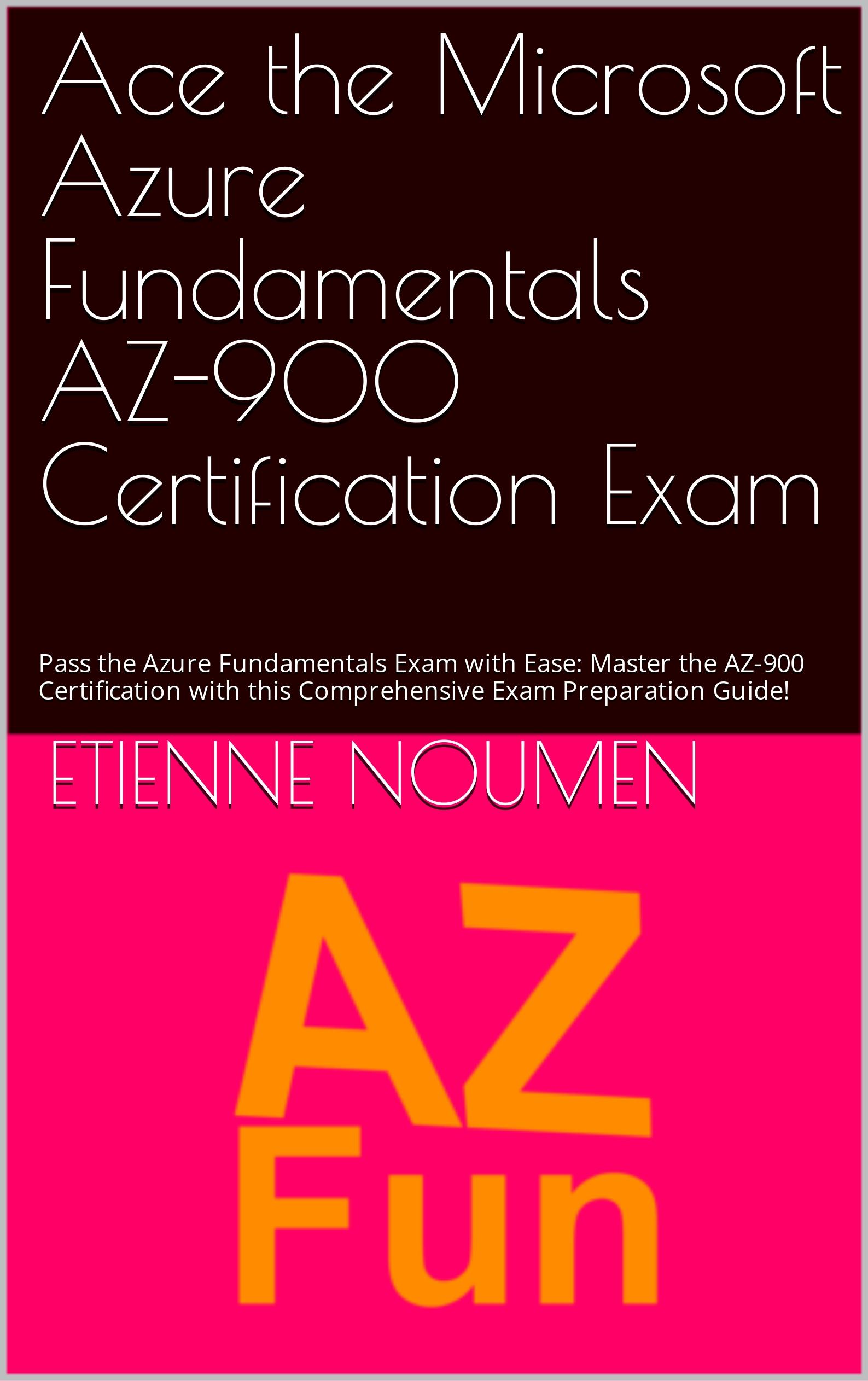
Djamgatech

Read Photos and PDFs Aloud for me iOS
Read Photos and PDFs Aloud for me android
Read Photos and PDFs Aloud For me Windows 10/11
Read Photos and PDFs Aloud For Amazon
Get 20% off Google Workspace (Google Meet) Business Plan (AMERICAS): M9HNXHX3WC9H7YE (Email us for more)
Get 20% off Google Google Workspace (Google Meet) Standard Plan with the following codes: 96DRHDRA9J7GTN6(Email us for more)
FREE 10000+ Quiz Trivia and and Brain Teasers for All Topics including Cloud Computing, General Knowledge, History, Television, Music, Art, Science, Movies, Films, US History, Soccer Football, World Cup, Data Science, Machine Learning, Geography, etc....

List of Freely available programming books - What is the single most influential book every Programmers should read
- Bjarne Stroustrup - The C++ Programming Language
- Brian W. Kernighan, Rob Pike - The Practice of Programming
- Donald Knuth - The Art of Computer Programming
- Ellen Ullman - Close to the Machine
- Ellis Horowitz - Fundamentals of Computer Algorithms
- Eric Raymond - The Art of Unix Programming
- Gerald M. Weinberg - The Psychology of Computer Programming
- James Gosling - The Java Programming Language
- Joel Spolsky - The Best Software Writing I
- Keith Curtis - After the Software Wars
- Richard M. Stallman - Free Software, Free Society
- Richard P. Gabriel - Patterns of Software
- Richard P. Gabriel - Innovation Happens Elsewhere
- Code Complete (2nd edition) by Steve McConnell
- The Pragmatic Programmer
- Structure and Interpretation of Computer Programs
- The C Programming Language by Kernighan and Ritchie
- Introduction to Algorithms by Cormen, Leiserson, Rivest & Stein
- Design Patterns by the Gang of Four
- Refactoring: Improving the Design of Existing Code
- The Mythical Man Month
- The Art of Computer Programming by Donald Knuth
- Compilers: Principles, Techniques and Tools by Alfred V. Aho, Ravi Sethi and Jeffrey D. Ullman
- Gödel, Escher, Bach by Douglas Hofstadter
- Clean Code: A Handbook of Agile Software Craftsmanship by Robert C. Martin
- Effective C++
- More Effective C++
- CODE by Charles Petzold
- Programming Pearls by Jon Bentley
- Working Effectively with Legacy Code by Michael C. Feathers
- Peopleware by Demarco and Lister
- Coders at Work by Peter Seibel
- Surely You're Joking, Mr. Feynman!
- Effective Java 2nd edition
- Patterns of Enterprise Application Architecture by Martin Fowler
- The Little Schemer
- The Seasoned Schemer
- Why's (Poignant) Guide to Ruby
- The Inmates Are Running The Asylum: Why High Tech Products Drive Us Crazy and How to Restore the Sanity
- The Art of Unix Programming
- Test-Driven Development: By Example by Kent Beck
- Practices of an Agile Developer
- Don't Make Me Think
- Agile Software Development, Principles, Patterns, and Practices by Robert C. Martin
- Domain Driven Designs by Eric Evans
- The Design of Everyday Things by Donald Norman
- Modern C++ Design by Andrei Alexandrescu
- Best Software Writing I by Joel Spolsky
- The Practice of Programming by Kernighan and Pike
- Pragmatic Thinking and Learning: Refactor Your Wetware by Andy Hunt
- Software Estimation: Demystifying the Black Art by Steve McConnel
- The Passionate Programmer (My Job Went To India) by Chad Fowler
- Hackers: Heroes of the Computer Revolution
- Algorithms + Data Structures = Programs
- Writing Solid Code
- JavaScript - The Good Parts
- Getting Real by 37 Signals
- Foundations of Programming by Karl Seguin
- Computer Graphics: Principles and Practice in C (2nd Edition)
- Thinking in Java by Bruce Eckel
- The Elements of Computing Systems
- Refactoring to Patterns by Joshua Kerievsky
- Modern Operating Systems by Andrew S. Tanenbaum
- The Annotated Turing
- Things That Make Us Smart by Donald Norman
- The Timeless Way of Building by Christopher Alexander
- The Deadline: A Novel About Project Management by Tom DeMarco
- The C++ Programming Language (3rd edition) by Stroustrup
- Patterns of Enterprise Application Architecture
- Computer Systems - A Programmer's Perspective
- Agile Principles, Patterns, and Practices in C# by Robert C. Martin
- Growing Object-Oriented Software, Guided by Tests
- Framework Design Guidelines by Brad Abrams
- Object Thinking by Dr. David West
- Advanced Programming in the UNIX Environment by W. Richard Stevens
- Hackers and Painters: Big Ideas from the Computer Age
- The Soul of a New Machine by Tracy Kidder
- CLR via C# by Jeffrey Richter
- The Timeless Way of Building by Christopher Alexander
- Design Patterns in C# by Steve Metsker
- Alice in Wonderland by Lewis Carol
- Zen and the Art of Motorcycle Maintenance by Robert M. Pirsig
- About Face - The Essentials of Interaction Design
- Here Comes Everybody: The Power of Organizing Without Organizations by Clay Shirky
- The Tao of Programming
- Computational Beauty of Nature
- Writing Solid Code by Steve Maguire
- Philip and Alex's Guide to Web Publishing
- Object-Oriented Analysis and Design with Applications by Grady Booch
- Effective Java by Joshua Bloch
- Computability by N. J. Cutland
- Masterminds of Programming
- The Tao Te Ching
- The Productive Programmer
- The Art of Deception by Kevin Mitnick
- The Career Programmer: Guerilla Tactics for an Imperfect World by Christopher Duncan
- Paradigms of Artificial Intelligence Programming: Case studies in Common Lisp
- Masters of Doom
- Pragmatic Unit Testing in C# with NUnit by Andy Hunt and Dave Thomas with Matt Hargett
- How To Solve It by George Polya
- The Alchemist by Paulo Coelho
- Smalltalk-80: The Language and its Implementation
- Writing Secure Code (2nd Edition) by Michael Howard
- Introduction to Functional Programming by Philip Wadler and Richard Bird
- No Bugs! by David Thielen
- Rework by Jason Freid and DHH
- JUnit in Action
#BlackOwned #BlackEntrepreneurs #BlackBuniness #AWSCertified #AWSCloudPractitioner #AWSCertification #AWSCLFC02 #CloudComputing #AWSStudyGuide #AWSTraining #AWSCareer #AWSExamPrep #AWSCommunity #AWSEducation #AWSBasics #AWSCertified #AWSMachineLearning #AWSCertification #AWSSpecialty #MachineLearning #AWSStudyGuide #CloudComputing #DataScience #AWSCertified #AWSSolutionsArchitect #AWSArchitectAssociate #AWSCertification #AWSStudyGuide #CloudComputing #AWSArchitecture #AWSTraining #AWSCareer #AWSExamPrep #AWSCommunity #AWSEducation #AzureFundamentals #AZ900 #MicrosoftAzure #ITCertification #CertificationPrep #StudyMaterials #TechLearning #MicrosoftCertified #AzureCertification #TechBooks
Top 1000 Canada Quiz and trivia: CANADA CITIZENSHIP TEST- HISTORY - GEOGRAPHY - GOVERNMENT- CULTURE - PEOPLE - LANGUAGES - TRAVEL - WILDLIFE - HOCKEY - TOURISM - SCENERIES - ARTS - DATA VISUALIZATION

Top 1000 Africa Quiz and trivia: HISTORY - GEOGRAPHY - WILDLIFE - CULTURE - PEOPLE - LANGUAGES - TRAVEL - TOURISM - SCENERIES - ARTS - DATA VISUALIZATION

Exploring the Pros and Cons of Visiting All Provinces and Territories in Canada.

Exploring the Advantages and Disadvantages of Visiting All 50 States in the USA

Health Health, a science-based community to discuss health news and the coronavirus (COVID-19) pandemic
- Chemicals in vapes could be highly toxic when heated, research finds | AI analysis of 180 vape flavours finds that products contain 127 ‘acutely toxic’ chemicals, 153 ‘health hazards’ and 225 ‘irritants’by /u/chrisdh79 on May 8, 2024 at 1:15 pm
submitted by /u/chrisdh79 [link] [comments]
- Highly Pathogenic Avian Influenza in Dairy Herdsby /u/Hiversitize on May 8, 2024 at 11:56 am
submitted by /u/Hiversitize [link] [comments]
- The FDA misses its own deadline to propose a ban on formaldehyde from hair productsby /u/Maxcactus on May 8, 2024 at 10:40 am
submitted by /u/Maxcactus [link] [comments]
- ANALYSIS | Florida has a beef with artificial meat. It's not aloneby /u/boppinmule on May 8, 2024 at 8:53 am
submitted by /u/boppinmule [link] [comments]
- FLiRT COVID variants symptoms explainedby /u/newsweek on May 8, 2024 at 8:35 am
submitted by /u/newsweek [link] [comments]
Today I Learned (TIL) You learn something new every day; what did you learn today? Submit interesting and specific facts about something that you just found out here.
- TIL: Drowning is by far the most common cause of death for Hawaiian tourists, with the majority of those deaths happening while snorkeling.by /u/realrealityreally on May 8, 2024 at 3:41 pm
submitted by /u/realrealityreally [link] [comments]
- TIL Matt Groening named the main members of the Simpsons family (apart from Bart) after his own family (ex. Homer Groening is Matt's father)by /u/KeeperCP1 on May 8, 2024 at 1:32 pm
submitted by /u/KeeperCP1 [link] [comments]
- TIL Isaac Newton created the modern color wheelby /u/Capnzebra1 on May 8, 2024 at 12:49 pm
submitted by /u/Capnzebra1 [link] [comments]
- TIL the East River (east side of Manhattan, Brookly Bridge crosses it) isn't a fork of the Hudson, but instead a tidal strait.by /u/drangundsturm on May 8, 2024 at 12:36 pm
submitted by /u/drangundsturm [link] [comments]
- TIL Abulia, a neurological condition, results in a significant lack of willpower or initiative, often leading to severe difficulties in decision-making and diminished motivation to engage in daily activities.by /u/whstlngisnvrenf on May 8, 2024 at 10:56 am
submitted by /u/whstlngisnvrenf [link] [comments]
Reddit Science This community is a place to share and discuss new scientific research. Read about the latest advances in astronomy, biology, medicine, physics, social science, and more. Find and submit new publications and popular science coverage of current research.
- Google DeepMind: AlphaFold 3 predicts the structure and interactions of all of life’s moleculesby /u/SharpCartographer831 on May 8, 2024 at 3:37 pm
submitted by /u/SharpCartographer831 [link] [comments]
- Study: Children who persistently sleep fewer hours more than twice as likely to develop a psychotic disorder in early adulthood, and nearly four times as likely to have a psychotic episode later in lifeby /u/FunnyGamer97 on May 8, 2024 at 3:19 pm
submitted by /u/FunnyGamer97 [link] [comments]
- After analyzing the health data of 92,383 healthcare professionals, researchers found that participants who regularly consumed olive oil were, on average, 28% less likely to die from dementia than their animal-fat-frying counterparts.by /u/chrisdh79 on May 8, 2024 at 3:02 pm
submitted by /u/chrisdh79 [link] [comments]
- Sheriffs reduce traffic enforcement during election years – "A county's per capita traffic fines revenue is 30% lower in the election than in nonelection years. The magnitude of the political cycle intensifies when an incumbent sheriff runs for reelection or an election is competitive."by /u/smurfyjenkins on May 8, 2024 at 2:25 pm
submitted by /u/smurfyjenkins [link] [comments]
- Deforestation can raise local temperatures by up to 4.5°C – and heat untouched areas 6km awayby /u/flemtone on May 8, 2024 at 2:14 pm
submitted by /u/flemtone [link] [comments]
Reddit Sports Sports News and Highlights from the NFL, NBA, NHL, MLB, MLS, and leagues around the world.
- Boxing champion Jermall Charlo arrested and charged with DWI following collisionby /u/Oldtimer_2 on May 8, 2024 at 1:34 pm
submitted by /u/Oldtimer_2 [link] [comments]
- MLB warns teams against encouraging players to withdraw from high schools to avoid amateur draftby /u/Oldtimer_2 on May 8, 2024 at 1:01 pm
submitted by /u/Oldtimer_2 [link] [comments]
- A ship carrying the Olympic torch arrives in Marseille amid fanfare and high securityby /u/Oldtimer_2 on May 8, 2024 at 12:58 pm
submitted by /u/Oldtimer_2 [link] [comments]
- Troyes suspend 4 players for throwing flares back at fansby /u/PrincessBananas85 on May 8, 2024 at 12:36 pm
submitted by /u/PrincessBananas85 [link] [comments]
- Maradona's stolen World Cup Golden Ball trophy to be auctionedby /u/Majano57 on May 8, 2024 at 12:19 pm
submitted by /u/Majano57 [link] [comments]
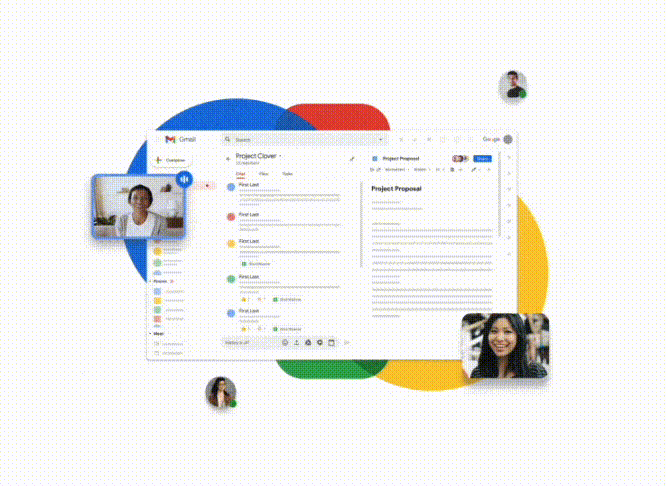
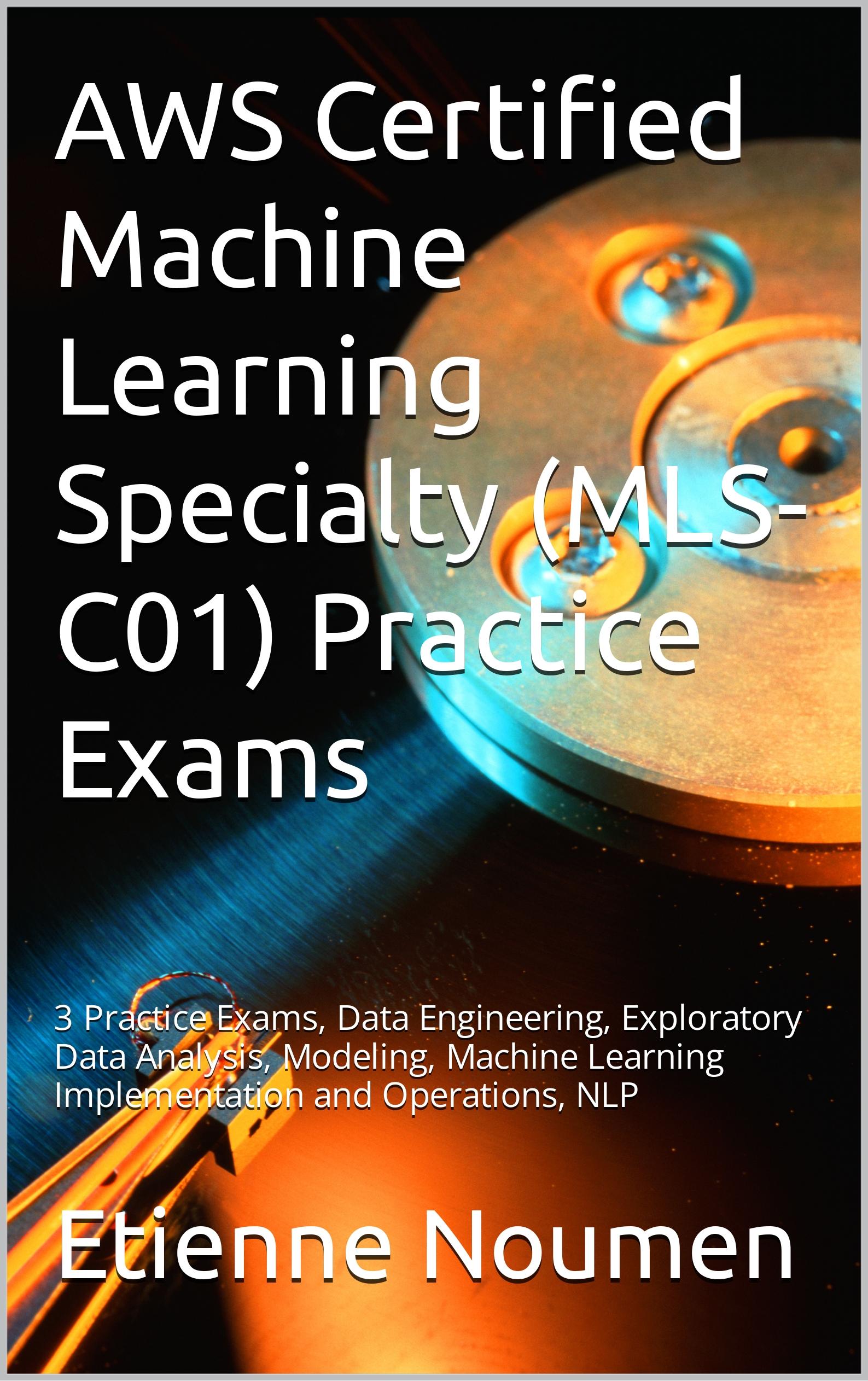







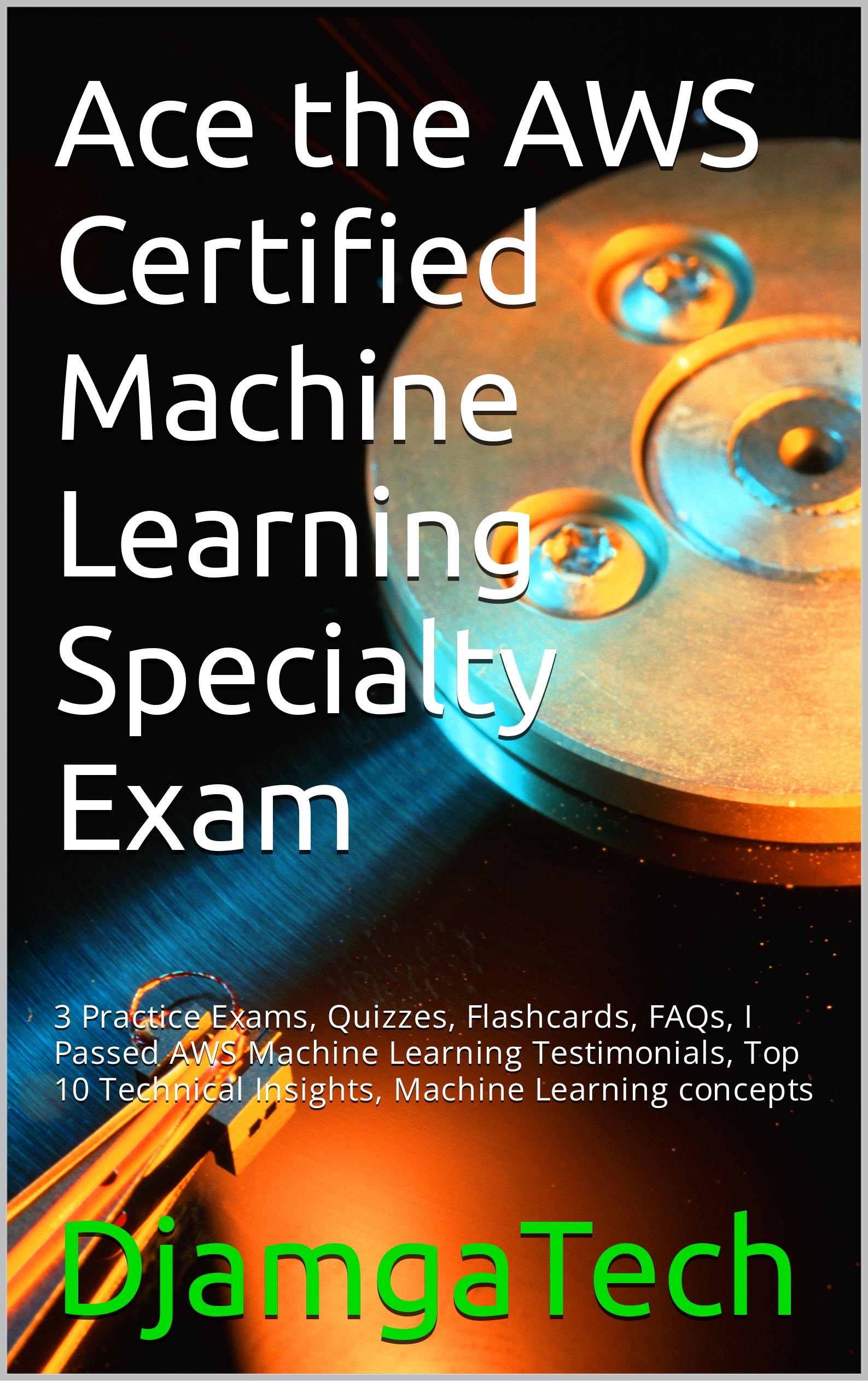

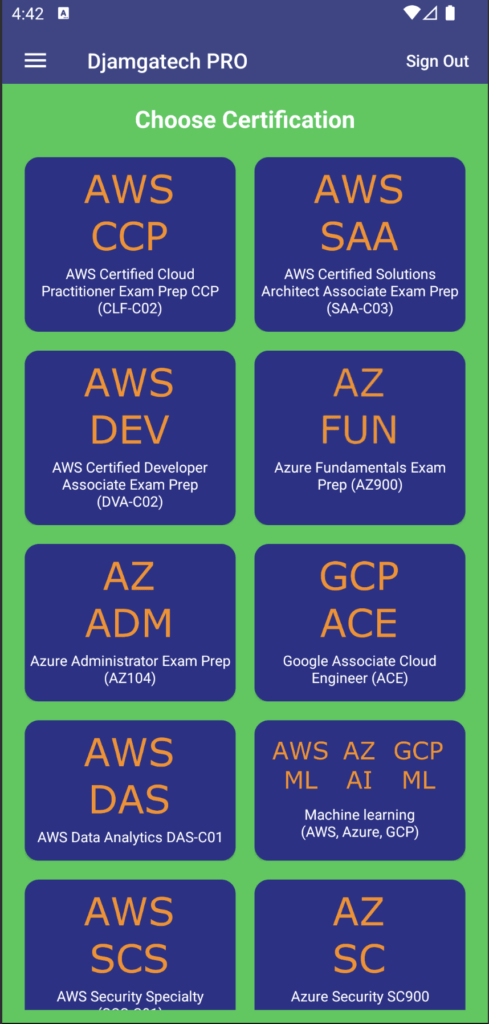

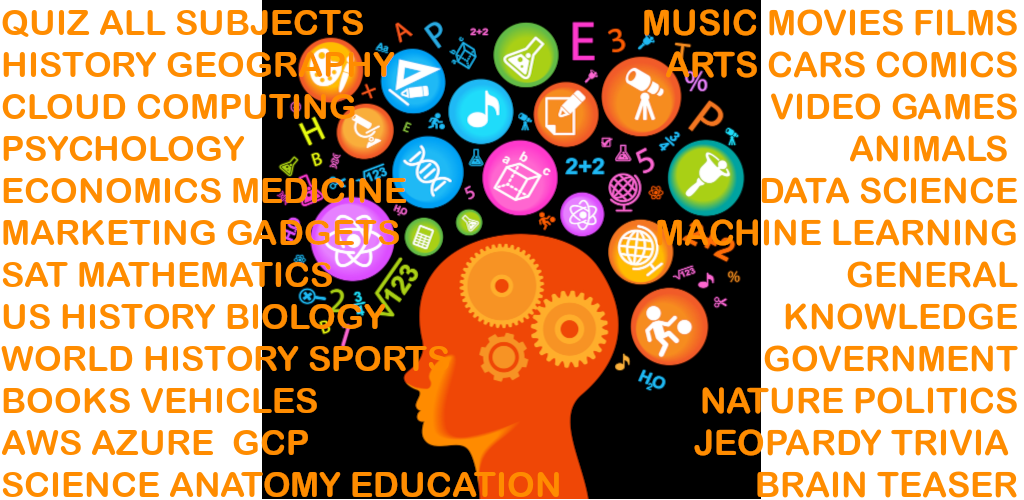

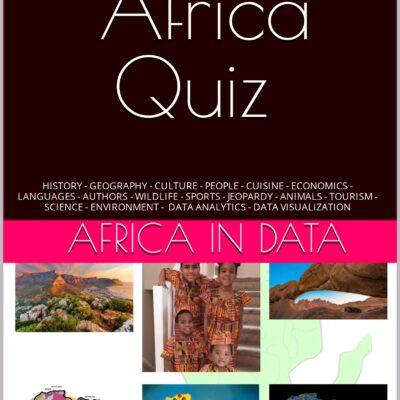

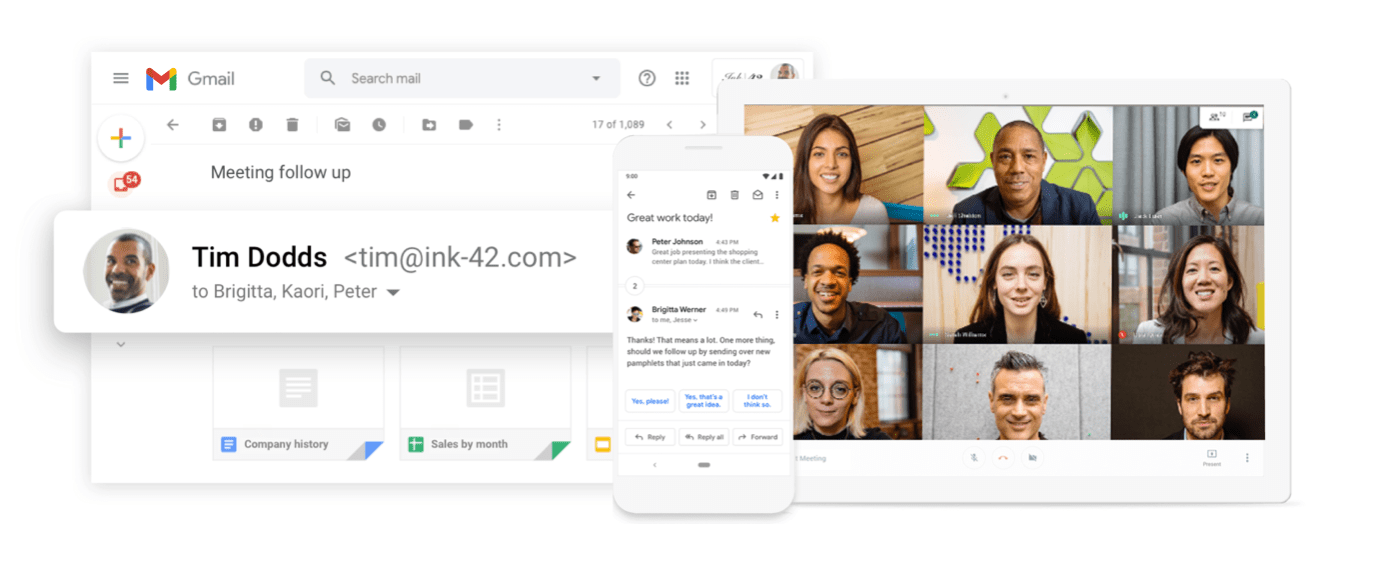 96DRHDRA9J7GTN6
96DRHDRA9J7GTN6